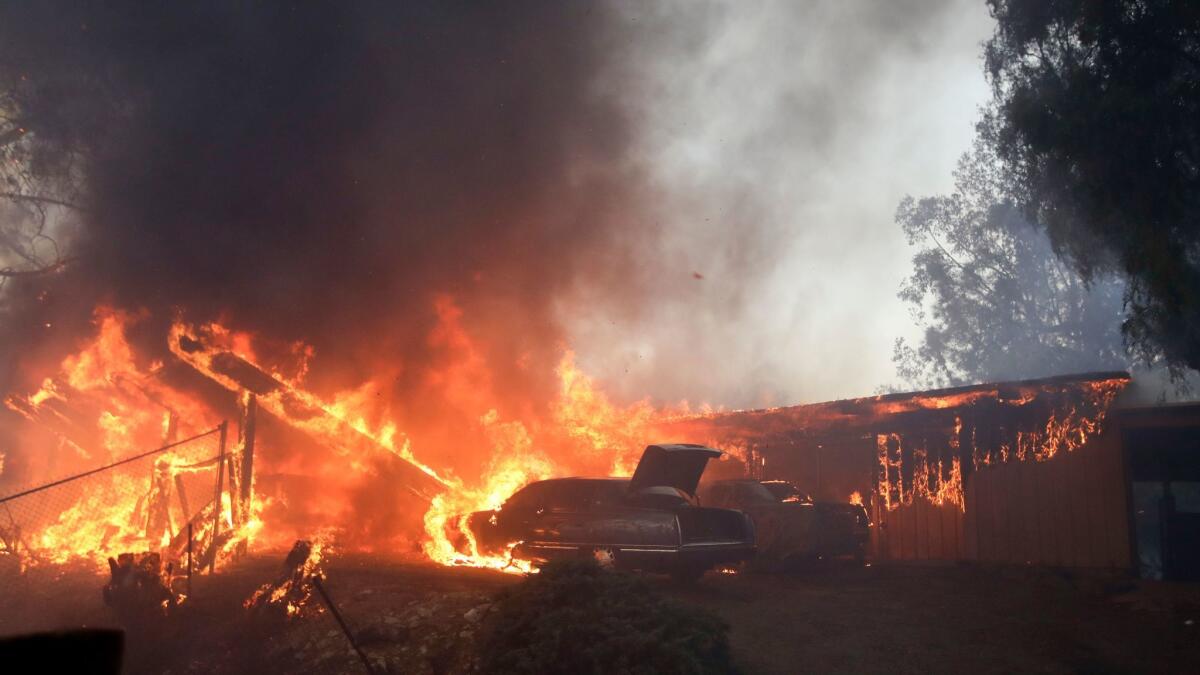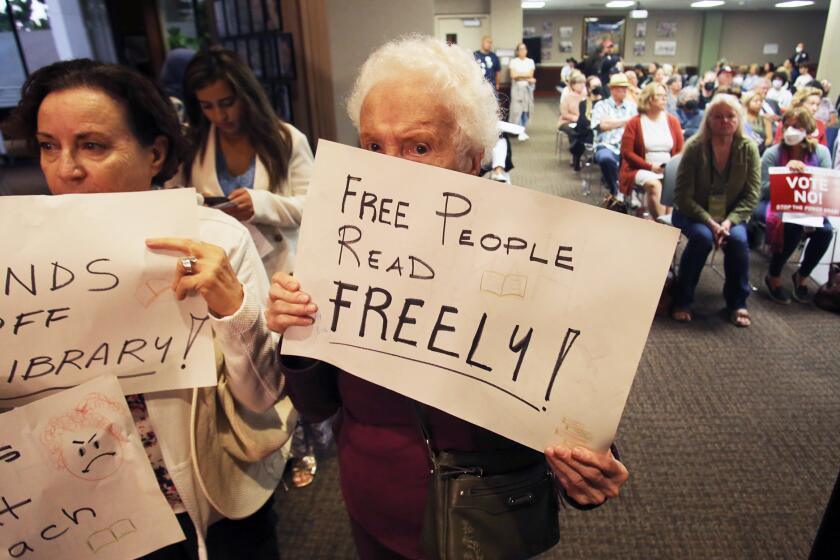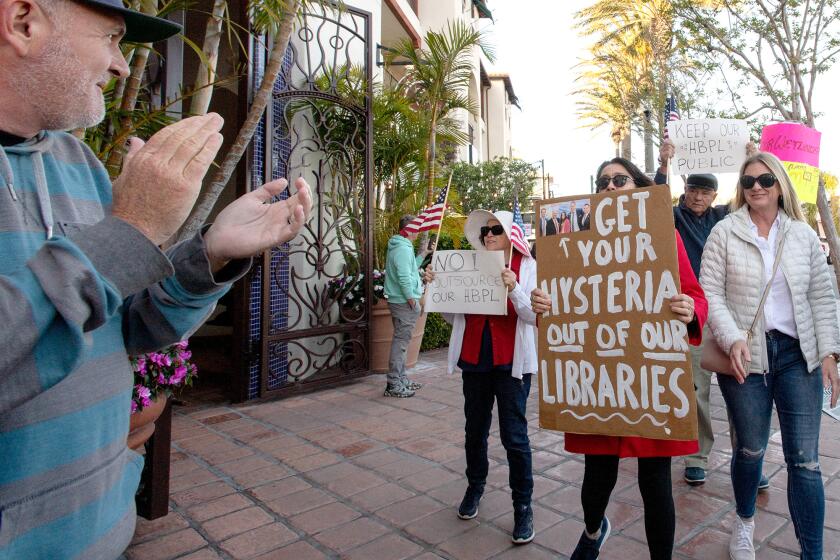Commentary: State of our union is closely linked to the state of our climate

President Trump opened his State of the Union address by acknowledging the heroic first responders who came to the aid of victims in the floods that devastated Houston and the wildfires that engulfed California. It’s a pity that he didn’t mention what made these natural disasters so deadly and costly: climate change.
Natural disasters in 2017 produced record-shattering damage estimated at $306 billion. In fact, 16 individual events cost the U.S. more than $1 billion each, according to the National Centers for Environmental Information.
The severe weather behind these disasters has worsened over the years because of rising temperatures. Some of last year’s most costly disasters include:
- Hurricane Harvey, which dumped more than 4 feet of rain in the Houston area. Ball State University estimates this disaster cost $198 billion.
- Hurricane Irma, a Category 5 storm with sustained winds of 185 mph. Damage is estimated at $66 billion.
- Hurricane Maria, which devastated Puerto Rico and caused about $90 billion in damages, according to USA Today. Many Puerto Ricans still lack electricity and clean water.
In California, drenching rain early in the year produced vegetation that became kindling during the summer because of dry, hot air (San Francisco hit 106 degrees). The result: California experienced its most destructive wildfire season in history with $11.8 billion in damage, according to Time.
Both the National Oceanic and Atmospheric Administration and NASA confirmed that 2017 was the hottest year on record without an El Nino. As the trend for global warming continues up, we can expect such natural disasters to be more intense and more frequent, eventually outpacing our ability to respond and adapt.
Responding to threats is clearly a priority of President Trump’s. According to his own military leaders, climate change is a clear and present danger. In 2017, Secretary of Defense James Mattis told the U.S. Senate, “Climate change is impacting stability in areas of the world where our troops are operating today.”
In the 2014 Quadrennial Defense Review, the military warned that climate change is a “threat multiplier,” aggravating issues like poverty, political instability and social tensions. On our own shores, rising seas threaten our military bases.
While the executive branch remains stubbornly ignorant on this issue, lawmakers see it with clearer eyes. In December, 106 members of Congress sent Trump a letter asking him to include climate change in America’s National Security Strategy.
“It is imperative that the United States addresses this growing geopolitical threat,” stated the letter, signed by Republicans and Democrats alike.
And the bipartisan drumbeat for climate action grows with each passing month. In the House of Representatives, the Climate Solutions Caucus had 18 members at the start of the 115th Congress, half Republican and half Democrat. Since then, its ranks have steadily increased to 68 members while maintaining party balance.
Caucus co-chair Rep. Carlos Curbelo (R-FL) has said, according to a Yale University journal, “I came to realize that this issue was hyper-politicized and highly polarized. And we knew that unless we worked to change that, to extract some of the politics from the issue… then it would be very hard to have a rational conversation about what’s happening and what we can do about it.”
What can we do about it?
A solution that finds support from conservatives and liberals alike is an approach known as carbon fee and dividend. This policy would put a fee on all oil, gas and coal we use in the United States. That would make clean energy cheaper and more attractive than dirty, polluting energy.
The money raised would be returned to Americans in the form of a monthly rebate. In 20 years, carbon fee and dividend would reduce our CO2 emissions 50% below 1990 levels. Plus, it would create jobs and put money into the pockets of hard-working Americans, so people can adapt and prosper.
Despite the president’s omission, it’s obvious that the state of our union is closely linked to the state of our climate, and it’s encouraging to see that Republicans and Democrats in Congress understand the risks our nation faces from a failure to act. When Congress introduces and passes bipartisan climate legislation, the state of our union will be undeniably stronger.
Coronado resident MARK REYNOLDS is executive director of the Citizens’ Climate Lobby, which is active in Newport Beach.
All the latest on Orange County from Orange County.
Get our free TimesOC newsletter.
You may occasionally receive promotional content from the Daily Pilot.



